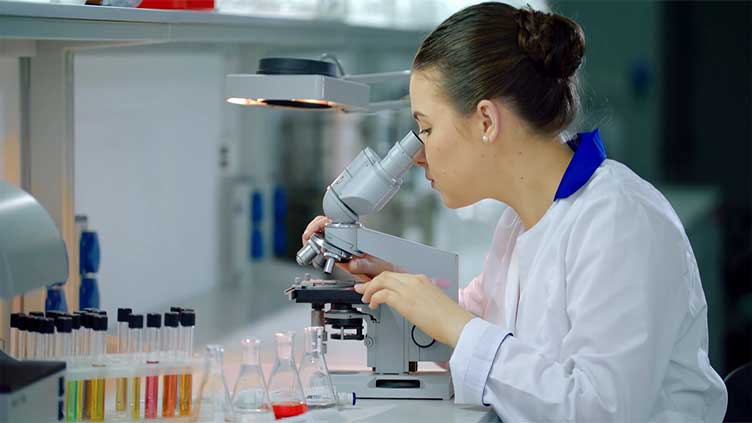Why are scientists growing human brain cells in the lab?

ISLAMABAD, (MNP) – Organoids — tissue cultures that roughly replicate the functions of an organ — allow researchers to observe how cells behave in tissues in vitro, in the lab. This is particularly helpful when it comes to investigating the brain and the conditions that affect it. But what are some of the ethical challenges?
Design by MNT; Photography by Yves Forestier/Getty Images & Noel Hendrickson Photography/Getty Images.
One of the greatest breakthroughs that have occurred in the past decade has been the ability to influence adult stem cells to differentiate to create certain cell types.
After conception, the cells that make up an embryo are totipotentTrusted Source, and can turn into any cell type the body requires in order to develop a full human. “Embryonic cells within the first couple of cell divisions after fertilization are the only cells that are totipotent,” explains New York State Stem Cell Science.
This property narrows throughout development and as a human ages, but the body retains some stem cells throughout its life.
Adults have stem cells in their bone marrow, which allow them to create many types of blood cells. This is known as multipotencyTrusted Source, which is crucial to allowing the immune system to stage a response to infection, for example.
While they are able to differentiate into many different cell types, multipotent stem cells are not able to differentiate into all the different cells types that form the adult body.
